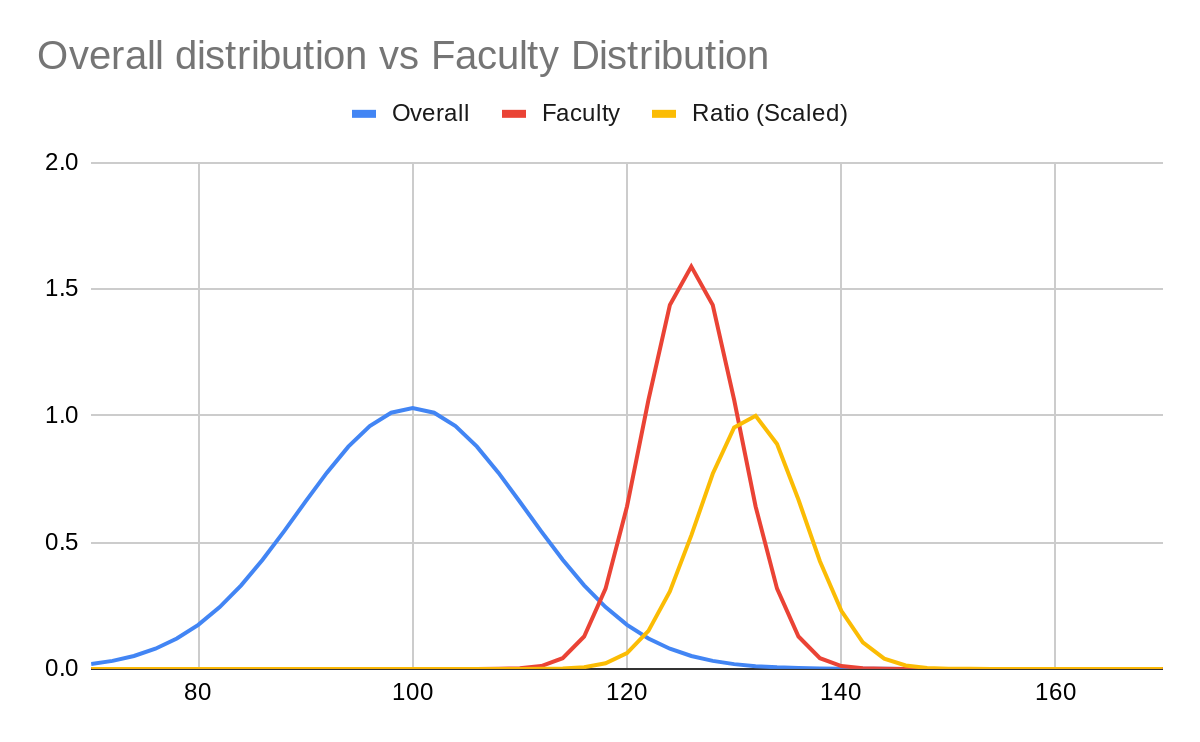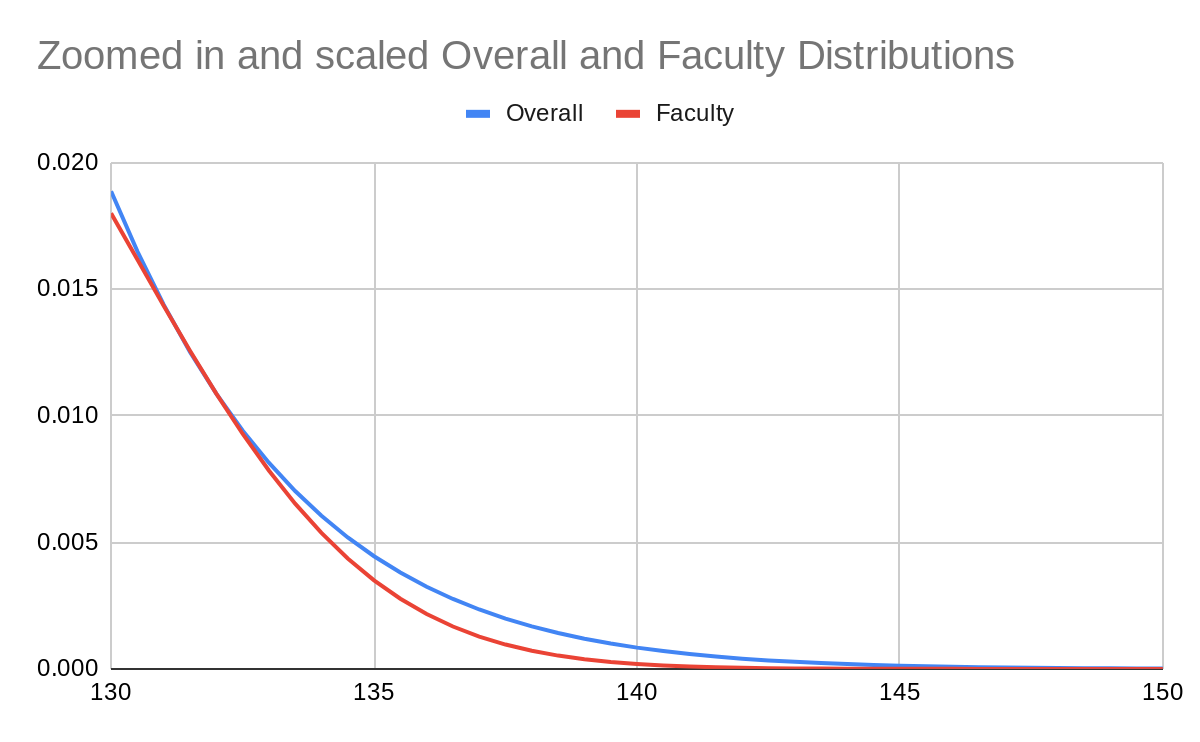I saw an article on high IQ people being excluded from elite professions. Because the site seemed to have a particular agenda related to the article, I wanted to check here for other independent supporting evidence for the claim.
Their fundamental claim seems to be that P(elite profession|IQ) peaks at 133 and decreases thereafter, and goes do to 3% of peak at 150. If true, I'd find that pretty shocking.
They indicate this diminishing probability of "success" at the high tail of the IQ distribution as a known effect. Anyone got other studies on this?
By dividing the distribution function of the elite professions' IQ by that of the general population, we can calculate the relative probability that a person of any given IQ will enter and remain in an intellectually elite profession. We find that the probability increases to about 133 and then begins to fall. By 140 it has fallen by about 1/3 and by 150 it has fallen by about 97%. In other words, for some reason, the 140s are really tough on one's prospects for joining an intellectually elite profession. It seems that people with IQs over 140 are being systematically, and likely inappropriately, excluded.


But they might work on children with high IQs because you can compare their performance to older children. A genius 8-year-old does as well as a typical 14-year old, whereas a super-genius 8-year-old does as well as a 16 year old.
Doesn't that sound like my second paragraph?
But there is an assumption here, that childhood IQ predicts adult IQ. In fact, it isn't very good at age 8. The SMPY age of 12 is better, though by no means perfect. When I say "good" or "better" I mean, of course, stability at the center, which might not predict stability at the tails. When SMPY finds that age 12 tests predict life outcomes, they are testing this directly. But what we really want to know is whether the SAT score at age 12 adds information to the low ceiling SAT score at age 17. I think that the SMPY results are strong enough to guarantee that, but I haven't checked.